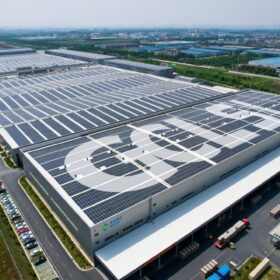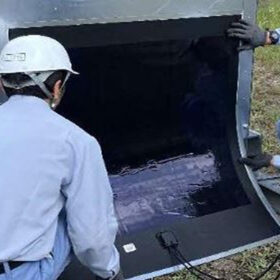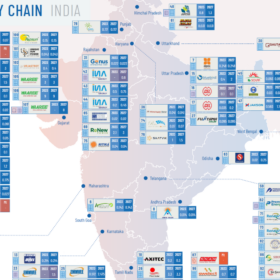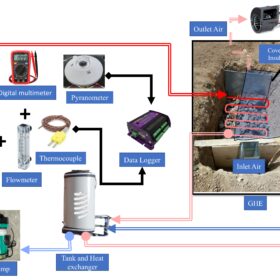Vertical rooftop PV performs better than conventional rooftop solar under the snow
A case study analysis by Norway’s Over Easy Solar has found that vertical rooftop solar panels outperform conventional rooftop PV systems during snowy months. Energy yield was up to 30% higher in the winter months in Norway, according to the company.
EDF Renewables, Enbridge switch on 577 MW of solar in US
EDF Renewables and Enbridge have launched the 577 MW Fox Squirrel Solar project in Ohio. It provides renewable energy to Amazon as the US state’s largest operational solar farm.
Gold Plus Glass enters solar glass manufacturing
Indian float glass manufacturer Gold Plus Glass has commissioned a new PV glass factory with an installed production capacity of 109,500 metric tons per year.
Chinese PV Industry Brief: China Huadian launches 18 GW inverter tender
China Huadian Corp. has launched an 18 GW inverter procurement tender seeking string inverters 300 kW and above, with 1,500 V DC input voltage and 10% overload capacity. Bidding starts on Feb. 6, 2025.
GCL SI enters back contact business with 660 W solar module
Chinese module maker GCL SI has expanded into back contact (BC) solar cell production with its first 660 W BC module, featuring tunnel oxide passivated contact (TOPCon) technology.
The impact of wildfires on PV power generation
Scientists have quantified the impact of wildfires on the availability of direct normal irradiance and global horizontal irradiance at the state, regional, and national levels in the United States. They have found that direct irradiance is more sensitive to smoke than the PV-relevant global horizontal irradiance.
Japanese railway operator testing perovskite solar on noise barriers
Central Japan Railway Co. and Sekisui Chemical have revealed plans to deploy flexible perovskite-based PV systems along the Tokaido Shinkansen train line in Japan. They are using thin, lightweight, flexible film-type perovskite solar cells.
Sinovoltaics highlights India’s strengthening supply chain
India’s solar panel supply chain map, recently updated by Hong Kong-based quality assurance firm Sinovoltaics, identifies 111 production sites with a combined PV module manufacturing capacity of 58.4 GW. An additional 60 GW is set to come online between 2027 and 2030, raising announced capacity expansions to 119 GW.
Storing photovoltaic-thermal energy with volcanic tuff stones
Scientists in China have used ground heat exchangers based on volcanic tuff stones to improve storage capabilities and efficiency of photovoltaic-thermal systems. Their experiments showed that the proposed combination effectively improves PV module cooling and thermal efficiency.
California winery installs solar with dual-axis tracking
A winery California will cover 95% of its electricity needs with a solar array that tilts on two axes to follow direct sunlight through the day.










